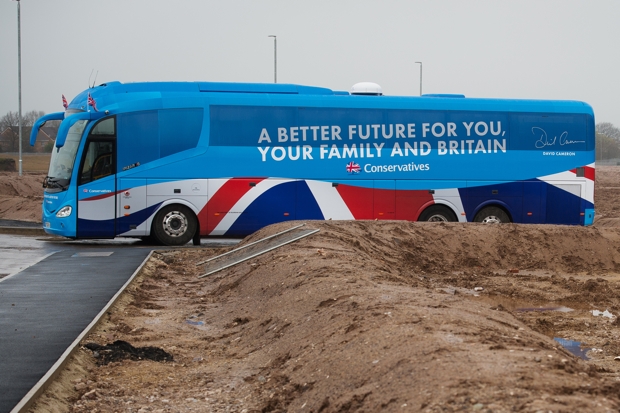About six years ago, when the Lib Dems were planning the 2010 election campaign, a lot of time went into the schedule of the daily morning press conference. A venue was booked, breakfast was ordered and a topic was picked for each event that we would wishfully imagine would dominate coverage (‘let’s make April 18th rural transport day!’).
In the end those press conferences, like the ones organised by the other parties, didn’t make it beyond the first debate and the realisation that they were, frankly, far more trouble than they were worth. Why spend a huge amount of time and money so that a load of hacks can come along and try to ruin your carefully scheduled plans with their annoying questions and refusal to stick to your script? The press conferences died and are unlikely to ever return.
This time round things seem to have got even worse for many journalists. In particular this hasn’t been a fun campaign for the newspapers; access to the leaders’ tour buses is as exclusive and pricey as membership of a top-end London club and those that do get on are ferried from one sterile photo op to the next (broadcasters are still welcome as the rules mean their coverage has to be more balanced). As Marina Hyde has noted, contact with real voters is kept to a bare minimum.
This shift doesn’t just apply to elections. The daily government lobby briefings have become monumentally tedious affairs for all concerned, mainly designed to stop news happening rather than informing the press about what’s going on. David Cameron’s promise of regular press conferences has turned out to mean ‘regular’ in the Halley’s Comet sense of the word.
Purely blaming the parties for this state of affairs is naive. Broadcast, online and social media now mean there are many more ways to get your message out that don’t involve being trailed by a load of people who do a very good impression of hating your guts. Ed Miliband could cure cancer tomorrow and half of the nation’s newspaper headlines would criticise him for putting nurses out of a job – what motivation is there for him to dish out extra opportunities for people to call him useless? Far better for Labour and the Conservatives to shut out potential critics and try to keep their friends happy with regular stories.
But this has all been too much for some; a few days ago the patience of the Daily Mail’s Stephen Glover, as it often does, snapped. ‘How
is it that the political process has been at least partly removed from the public sphere, so that it is increasingly controlled by the parties themselves, and as far removed as possible from ordinary voters?’ he fumed. Part of the answer to that is ‘because you’ve let them’.
Imagine a friend of yours was in a relationship with someone who treats them terribly, but occasionally needs their help, and every single time your friend steps in to their aid. You’d probably tell them to stop being so daft and tell their ungrateful other half to get stuffed. But right now, just as newspapers have the most power over their evil tormentors in the two main political parties, what do they do? They run to their rescue.
So it is that open letters from party loyalists get the kind of front pages that would usually be reserved for a foreign invasion, margin of error poll swings are celebrated or ignored depending on who randomly benefits on that day and every single move by the other side is written up as a complete calamity.
When the two big parties know that many papers will come running back onside when it matters, why on earth should they behave differently? The days of parties happily dishing out blanket access to newspaper journalists during elections are, for better or worse, gone so it’s time for the papers to back out of their end of the deal. As a starter let’s try this one: the next time a supposedly spontaneous open letter finds its way to a newspaper -‘100 Witney pensioners say we’re backing Cameron’ or similar – don’t turn it into the splash, do something really shocking: just stick it in a corner of the letters page where it belongs.
Sean Kemp is a former Liberal Democrat special adviser in Downing Street






Comments